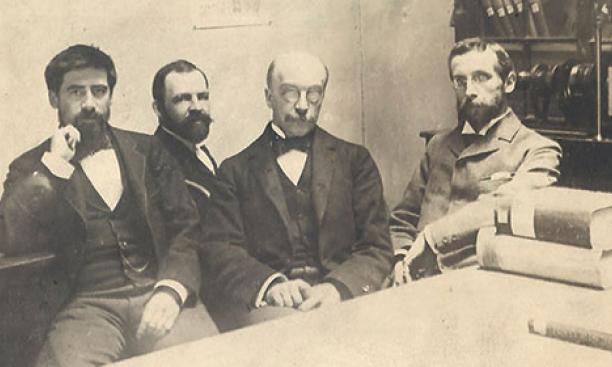

As spring semester began in 1879, John Bach McMaster, a young civil engineering professor, had a secret: He recently had started to write a history of the United States in his room in Witherspoon Hall. There was little else to do in his free time — nobody ever paid attention to the obscure little man, least of all his fellow teachers.
Awakened by the Nassau Hall bell each morning, McMaster proceeded to “comb my flowing mane in a glass that does full justice to the richness of my Teutonic loveliness,” he wrote to his mother. He was jesting — in fact, his bald head resembled, he once confessed, “a watermelon on a stalk.”
Nothing suited him here. “Teaching lunk-heads to survey farms, and rivers, and railroads is not so much fun as it looks,” he lamented. Freshmen were “spry, slick, funny little boys” who spat tobacco during lectures in Dickinson Hall. Ever droll, McMaster warned them that “a student who expectorates on the floor must not expect-to-rate high in his class.”
Autocratic Scottish president James McCosh (“the old gentleman”) stressed piety, but the hypocritical faculty were “money worshipping” and “too small- and narrow-minded to see over the wall of mud that shuts them in.” McMaster dared not hint that he was writing a book that wasn’t about engineering.
The first of eight volumes of his History of the People of the United States appeared in 1883 and became a smash hit — running through four editions in three months. It helped pioneer the field of social history, with newspapers combed for details of everyday life. McMaster was suddenly a household name.
“Well, Mr. McMaster, why did na ye tell us that ye were a great mon!” the flabbergasted McCosh exclaimed. And why hadn’t he given credit to his employer in the book? “Because Princeton has never professed any attachment to myself,” McMaster tartly replied.
“Left Princeton, Thank God forever,” McMaster told his diary in June 1883 as he headed to Penn and a 37-year career as dean of American historians.
